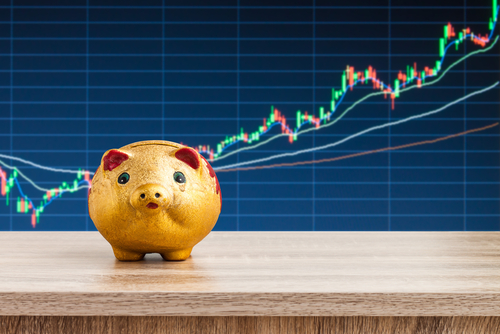
These companies should be able to hold their own and even thrive.
The market has flipped from greed to fear as concerns over the coronavirus outbreak spreads.
In the span of a week, stocks sold off over 10 percent. That’s only the sixth time since the financial crisis that a drop has been that steep.
There could still be some downside, but a combination of solid growth plays and pre-coronavirus laggard companies could do well for investors here.
That’s because, in time, fears will subside. Supply chains will be normalized. Things will return to normal, and the market will find some new issue to sweat over.
Companies that underperformed when the market was last going up may be a leader going forward. And companies that can continue to grow in adverse times will likely see further growth. One company from each of those categories looks like a top buy now:
Market Safe-Haven Play #1: Berkshire Hathaway (BRK-B)
Just a few weeks back, investors were deriding Berkshire Hathaway for its poor performance. Despite having a massive investment portfolio loaded with great companies—as well as dozens of businesses owned outright—shares didn’t do as well as the S&P 500 in 2019.
That led many to criticize the company’s CEO, investment superstar Warren Buffett. Buffett often gets flack for underperforming during go-go markets, however. He was dismissed as a has-been in the 1990’s during the tech bubble.
Buffett’s best skill is putting cash to work. What makes him great about it is his discipline for doing so only when there’s a good bargain. Recently, he’s allowed the cash holdings of Berkshire to balloon up to over $120 billion.
That’s a tidy sum, but it’s also been a reflection of market valuations. Buffett may use the coronavirus scare to pick up some great companies—either in whole or a shareholder stake—at much more reasonable prices.
That’s where the real value of Buffett’s strategy comes in. Investors who buy shares of Berkshire are getting a portfolio of great stocks including names like Apple and American Express. But they’re also getting Berkshire’s subsidiaries like GEICO, Burlington Northern, and Benjamin Moore paints.
Most of these holdings are recession-resistant, all-weather names. While they’ll sell off in a recession, they’ll still hold their own in terms of market share over time.
Looking at these factors, we see Berkshire as a worthwhile safe-haven buy. Their recent earnings report was overshadowed by the market scare, and there’s an attractive value there.
We like the company’s B shares up to $215, well off their 52-week high of $230.
Market Safe-Haven Play #2: Square (SQ)
Shares of the payment processing company have been trending higher in recent months, gaining nearly 30 percent at their peak. While shares started to decline with the market slide, the company’s strong earnings report sent them higher instead.
The company beat earnings estimates by 2 cents in the most recent quarter. Additionally, the company’s Cash App saw solid growth in payment volume. Revenue in that space rose 147 percent year-over-year, and gross profit was up 104 percent.
These are killer numbers, and it’s easy to see why shares managed to head higher in the midst of the worst week for the stock market since the financial crisis.
Currently, payment companies are expected to take a hit from the coronavirus. The reasoning is that fewer transactions will be made as folks avoid public activities for the duration of the outbreak.
Square weighed in on that slightly as well, but given the growth numbers it’s posting, the market has bigger fears to deal with elsewhere.
But shares haven’t always been on a growth tear like they have in the past few weeks. Shares are basically flat over the past year, and spent most of 2019 out of favor with the market until a year-end rally.
With things looking up now, shares look like a reasonable buy up to $85 with a price target of $100 in the coming months.
Options traders looking to go long in this market should consider the June 2020 $90 calls. Trading for about $5.55, they’re reasonably priced for a move higher. And if shares do hit $100, the calls would be worth $10 at expiration, making for just under a double.
